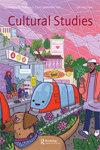预期、废除、可能性:关于暴乱、网络通信和倾听
IF 1.2
3区 社会学
Q1 ANTHROPOLOGY
引用次数: 0
摘要
摘要本文探讨了2020年5月25日乔治·弗洛伊德被杀后,世界各地爆发的骚乱和抗议活动。它审视了噪音和倾听的政治与日益增长的废除死刑的呼声之间的关系,询问我们如何倾听并支持废除死刑的必要性。这篇论文将暴乱视为一种斗争形式,以应对资本主义在其循环阶段产生的危机,特别是种族化的剩余人口的产生,这些人口受到密集形式的监管。骚乱被认为是一种内在的政治,暗示了Ashon T.Crawley所说的“其他可能性”。本文追踪了引发骚乱的历史条件,并将街头的噪音追踪到平台媒体和平台媒体,以将骚乱理论化为一种有组织、有传染性的独特斗争形式。谈到暴乱的声音性,这种集体形成的噪音在形而上学的术语中被认为是解释转变和可能性的噪音——一种没有单一起源点的原始动荡,预示着世界的相对性。然后,本文阐述了倾听作为生成集体和团结的关键模式,发展了一种废奴主义的倾听概念,该概念与噪音的关系相协调,并预示着预期和可能性。本文章由计算机程序翻译,如有差异,请以英文原文为准。
Anticipation, abolition, possibility: on riots, networked communication, and listening
ABSTRACT This paper considers the riots and protests that irrupted around the world in the wake of the killing of George Floyd on 25 May 2020. It examines the politics of noise and listening in relation to the growing calls for abolition, asking how we can listen to, and for, an abolitionist imperative. The paper contextualizes the riot as a form of struggle that responds to the crises produced by capitalism in its circulatory phase, specifically the production of racialized surplus populations that are subjected to intensive forms of policing. The riot is figured as a politics of immanence that suggests what Ashon T. Crawley calls ‘otherwise possibilities’. The paper tracks the historical conditions that give rise to riots and follows the noise in the street into platform media and back again in order to theorize the riot as a distinct form of struggle that is organized as well as contagious. Turning to the sonicity of the riot, the noise of this collective formation is figured in metaphysical terms as that which accounts for transformation and possibility – an originary turbulence with no single point of origin that foregrounds the relationality of the world. The paper then elaborates on listening as a crucial modality for generative collectivity and solidarity, developing an abolitionist conception of listening that attunes to relationality of noise and foregrounds anticipation and possibility.
求助全文
通过发布文献求助,成功后即可免费获取论文全文。
去求助
来源期刊

Cultural Studies
Multiple-
CiteScore
3.50
自引率
6.70%
发文量
0
期刊介绍:
Cultural Studies is an international journal which explores the relation between cultural practices, everyday life, material, economic, political, geographical and historical contexts. It fosters more open analytic, critical and political conversations by encouraging people to push the dialogue into fresh, uncharted territory. It also aims to intervene in the processes by which the existing techniques, institutions and structures of power are reproduced, resisted and transformed. Cultural Studies understands the term "culture" inclusively rather than exclusively, and publishes essays which encourage significant intellectual and political experimentation, intervention and dialogue.
 求助内容:
求助内容: 应助结果提醒方式:
应助结果提醒方式:


